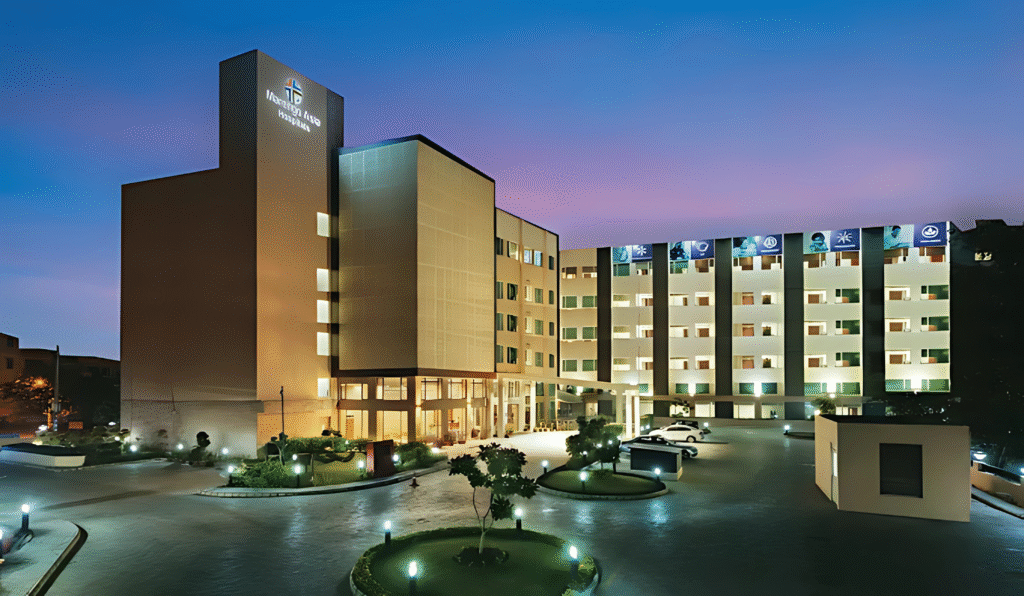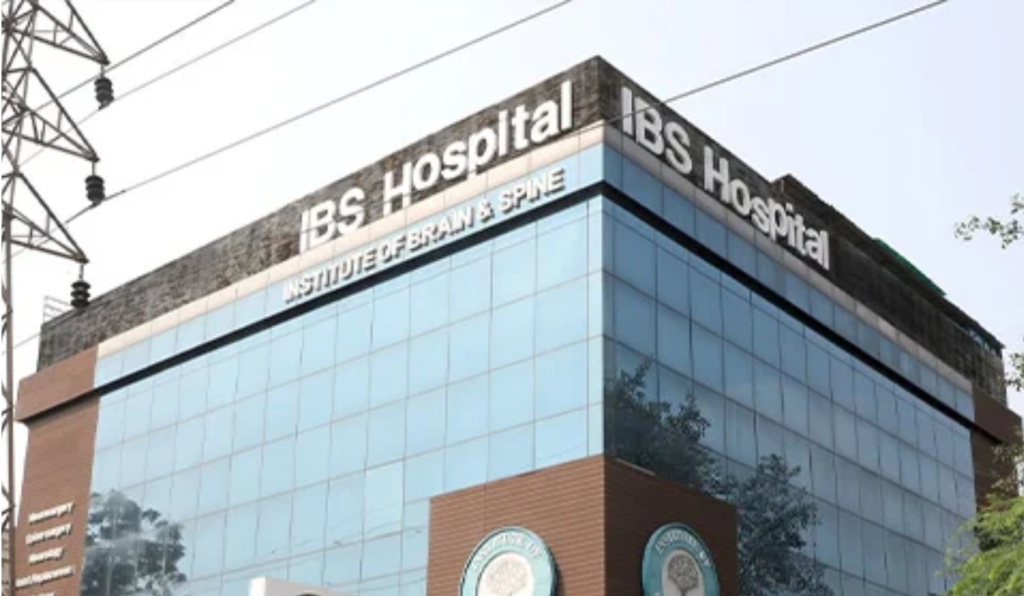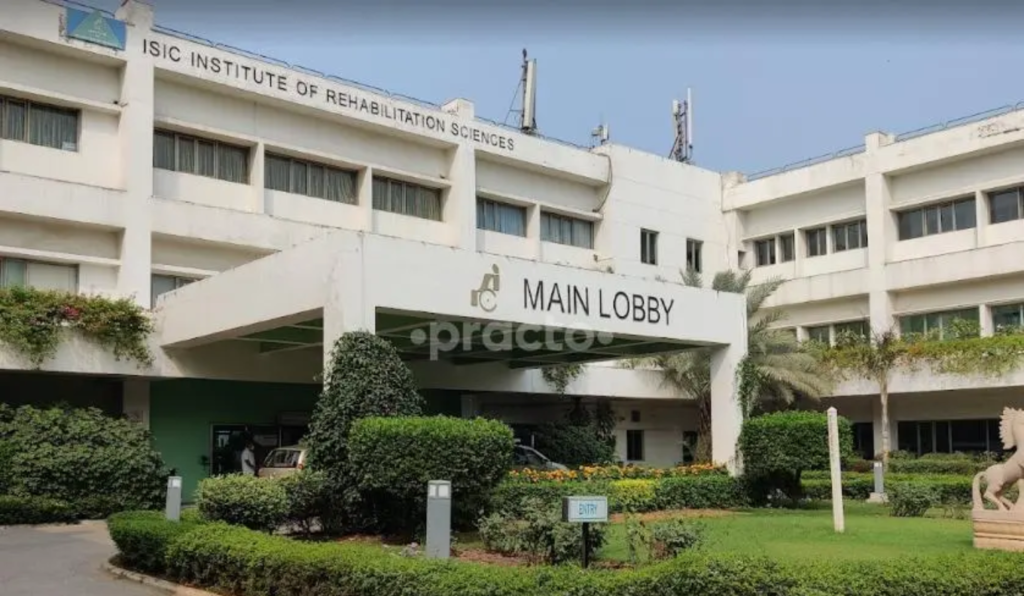Prostate Cancer Treatment Cost in India

What is Blood Cancer?
Blood cancer, also known as hematologic cancer, refers to a group of cancers that affect the bone marrow, blood, and lymphatic system. These cancers interfere with the normal production and function of blood cells, especially white blood cells, red blood cells, and platelets. They typically begin in the bone marrow — the soft, spongy tissue inside bones where blood cells are produced — and can spread throughout the body via the bloodstream or lymphatic system.
There are three major types of blood cancer:
1. Leukemia
Leukemia is a cancer of the blood-forming tissues, primarily affecting the white blood cells. These abnormal white cells multiply uncontrollably and fail to function properly, crowding out healthy blood cells. Leukemia can be acute (fast-growing) or chronic (slow-growing), and may affect either lymphoid or myeloid cells.
2. Lymphoma
Lymphoma starts in the lymphatic system, which is a critical part of the immune system. It affects the lymphocytes — a type of white blood cell that helps fight infection. There are two main types:
Hodgkin Lymphoma (HL): Characterized by the presence of Reed-Sternberg cells.
Non-Hodgkin Lymphoma (NHL): A diverse group of blood cancers that do not involve Reed-Sternberg cells and vary in behavior and severity.
3. Multiple Myeloma
Multiple myeloma is a cancer of plasma cells, another type of white blood cell found in the bone marrow. These cancerous plasma cells produce abnormal antibodies (called M proteins), which can build up and cause bone damage, kidney problems, and suppressed immunity.
Each type of blood cancer has distinct characteristics, but they all impair the body’s ability to produce healthy blood cells and mount an effective immune response. Early diagnosis and targeted treatment significantly improve outcomes for patients with blood cancers.
How Does Blood Cancer Develop?
Blood cancer develops when the normal process of blood cell production is disrupted by the uncontrolled growth of abnormal cells in the bone marrow or lymphatic system. These abnormal cells fail to function properly and multiply rapidly, eventually crowding out healthy cells that are essential for immunity, oxygen transport, and clotting.
Here’s how it develops across the three main types:
1. Leukemia
In leukemia, the bone marrow starts producing large numbers of abnormal white blood cells. These cells don’t fight infection like normal white cells and prevent the production of red cells and platelets. Over time, this leads to anemia, bleeding issues, and a weakened immune system.
2. Lymphoma
Lymphoma begins in the lymphatic system, where lymphocytes (a type of white blood cell) start multiplying uncontrollably. These cancerous cells accumulate in lymph nodes and other tissues, causing swelling and impairing the body’s immune defense. The cancer can spread to other organs through the lymphatic network.
3. Multiple Myeloma
Multiple myeloma originates in plasma cells, which are responsible for producing antibodies. When these cells become cancerous, they produce abnormal proteins (M proteins) that do not help fight infection. These proteins can build up in the blood and organs, particularly the kidneys, and also damage bones by disrupting the balance of bone formation and breakdown.
In all three types, the common feature is the overproduction of dysfunctional cells that suppress the normal production of healthy blood cells, leading to a variety of complications affecting immunity, oxygen delivery, and blood clotting.
Causes and Risk Factors of Blood Cancer
The exact cause of blood cancer is still unknown, but researchers believe it results from genetic mutations combined with environmental and lifestyle factors. These mutations affect how blood cells grow, divide, and die — leading to the uncontrolled growth of abnormal cells.
Common Risk Factors for Blood Cancer:
Genetic predisposition – Family history of blood cancer increases the risk.
Exposure to radiation or chemicals – Such as benzene or pesticides.
Weakened immune system – Due to conditions like HIV/AIDS or organ transplants.
Autoimmune diseases – Such as lupus or rheumatoid arthritis.
Age – Most blood cancers are more common in older adults (especially leukemia and myeloma).
Viral infections – Like Epstein-Barr virus (EBV), Human T-lymphotropic virus (HTLV-1), and hepatitis viruses.
Gender – Some blood cancers are more common in men (e.g., multiple myeloma).
Each type of blood cancer may also have specific risk factors:
Leukemia: Smoking, certain chemotherapy drugs, and exposure to industrial chemicals.
Lymphoma: Previous infections with EBV, exposure to herbicides, and autoimmune diseases.
Multiple Myeloma: Obesity, African-American descent, and a personal history of monoclonal gammopathy.
Symptoms of Blood Cancer
Symptoms may vary depending on the type and stage of the blood cancer, but many signs overlap due to the impact on blood cell production and immune function.
Common Symptoms Across All Types:
Unexplained weight loss
Fatigue and weakness
Frequent infections
Fever and night sweats
Easy bruising or bleeding
Bone or joint pain
Enlarged lymph nodes
Shortness of breath or anemia
Symptoms Specific to Each Type:
Leukemia:
Pale skin
Frequent nosebleeds or bleeding gums
Swollen spleen or liver
Lymphoma:
Painless swelling in the neck, armpit, or groin (lymph nodes)
Persistent cough or chest pain (especially in mediastinal lymphomas)
Itchy skin or rashes
Multiple Myeloma:
Bone pain, especially in the back or ribs
High calcium levels leading to nausea or confusion
Kidney dysfunction or frequent urination
Because blood cancer symptoms often resemble less serious illnesses, people may delay seeking care — making early detection through blood tests or imaging all the more crucial.
Types of Blood Cancer
Blood cancer is broadly classified into three major types: Leukemia, Lymphoma, and Multiple Myeloma. Each type affects a different component of the blood or lymphatic system and has distinct behaviors, symptoms, and treatment approaches.
Which Type of Prostate Cancer is the Most Dangerous?
Among these types, small cell carcinoma and squamous cell carcinoma are the most aggressive and difficult to treat. They often spread quickly and do not respond well to standard hormone therapies.
Leukemia
Leukemia is a cancer of the blood and bone marrow that involves the overproduction of abnormal white blood cells. It is classified based on the speed of progression (acute or chronic) and the type of white blood cell involved (lymphoid or myeloid).
Acute Lymphoblastic Leukemia (ALL)
- Affects immature lymphocytes.
- Rapidly progressing and common in children but can affect adults.
- Symptoms appear suddenly, including fatigue, fever, and bleeding.
Acute Myeloid Leukemia (AML)
- Affects immature myeloid cells that would become red cells, white cells, or platelets.
- Common in older adults.
- Symptoms include bone pain, anemia, and infections.
Chronic Lymphocytic Leukemia (CLL)
- Progresses slowly and mostly affects people over 60.
- Often detected during routine blood tests.
- May not show symptoms initially.
Chronic Myeloid Leukemia (CML)
- Caused by a genetic mutation (Philadelphia chromosome).
- Progresses in phases: chronic, accelerated, and blast crisis.
- Targeted therapies have improved outcomes significantly.
Lymphoma
Lymphoma originates in the lymphatic system, which is part of the body’s immune system. It occurs when lymphocytes (a type of white blood cell) grow uncontrollably.
Lymphomas are mainly divided into:
Hodgkin Lymphoma (HL)
- Marked by the presence of Reed-Sternberg cells.
- Most common in young adults and people over 55.
- Highly treatable, even at advanced stages.
Non-Hodgkin Lymphoma (NHL)
- More common than Hodgkin lymphoma.
- Includes many subtypes like diffuse large B-cell lymphoma and follicular lymphoma.
- Can be aggressive or slow-growing (indolent).
Chronic Lymphocytic Leukemia (CLL)
- Progresses slowly and mostly affects people over 60.
- Often detected during routine blood tests.
- May not show symptoms initially.
Chronic Myeloid Leukemia (CML)
- Caused by a genetic mutation (Philadelphia chromosome).
- Progresses in phases: chronic, accelerated, and blast crisis.
- Targeted therapies have improved outcomes significantly.
Multiple Myeloma
Multiple myeloma affects plasma cells, a type of white blood cell found in the bone marrow that helps fight infection by producing antibodies.
- Cancerous plasma cells produce abnormal proteins called M-proteins.
- These proteins can cause organ damage, bone destruction, and weakened immunity.
- It is more common in older adults and often presents with bone pain, kidney issues, and fatigue.
Why Choose India for Treatment of Blood Cancer Treatment?
India has become one of the top destinations globally for high-quality, affordable, and comprehensive cancer care — including specialized treatment for all types of blood cancers such as Leukemia, Lymphoma, and Multiple Myeloma. Here’s why patients prefer India for blood cancer treatment:
India has renowned hospitals with dedicated hematology-oncology departments and bone marrow transplant units equipped to treat complex blood cancers like Leukemia, Lymphoma, and Multiple Myeloma. These centers follow global protocols and offer both autologous and allogeneic transplants under strict safety standards.
Indian oncologists and hematologists are internationally trained, with expertise in treating even the rarest blood cancers. Many have worked at reputed global cancer institutes and are up to date with the latest research and clinical practices in oncology.
India offers world-class medical care at a fraction of the cost compared to the US, UK, or Europe. From chemotherapy to stem cell transplants, treatments are more affordable, making India an ideal choice for patients from around the world.
Cutting-edge treatments like CAR-T cell therapy, targeted therapy, and monoclonal antibodies are available in India and have shown promising results in certain blood cancers. These treatments are performed under expert supervision using international protocols.
Early diagnosis is key in treating aggressive blood cancers. Indian hospitals offer rapid test results and prompt treatment initiation, significantly improving patient outcomes and reducing disease progression risks.
India is a global leader in medical tourism, offering:
✔ Dedicated international patient coordinators
✔ Medical visa assistance for easy travel
✔ Affordable accommodation & travel support
✔ Multilingual staff, including English-speaking doctors
This ensures a smooth and hassle-free experience for foreign patients traveling to India for treatment.
Different types of Treatments for Blood Cancer
Blood cancer treatment strategies are personalized based on the type of blood cancer—Leukemia, Lymphoma, or Multiple Myeloma—its stage, the patient’s age, and overall health. Below are the most commonly used treatments:
Chemotherapy involves the use of anti-cancer drugs that target and destroy rapidly dividing cancer cells throughout the body. These drugs can be taken orally or administered through an IV and are often given in cycles to allow the body time to recover between sessions.
Types of Chemotherapy:
Induction Chemotherapy: High-dose drugs used initially to kill most cancer cells.
Consolidation Chemotherapy: Follows induction to eliminate remaining cells.
Maintenance Chemotherapy: Low-dose drugs given over time to prevent relapse.
When It’s Used:
Chemotherapy is the first-line treatment for most cases of leukemia and is also widely used in lymphoma and multiple myeloma.
Benefits:
Effective in destroying cancer cells throughout the body.
Can be combined with other therapies such as stem cell transplantation.
Helps achieve remission in aggressive blood cancers.
Targeted therapy focuses on specific genes, proteins, or enzymes that are unique to cancer cells. These treatments interfere with cancer cell growth and function while minimizing damage to normal cells.
Types of Targeted Therapy:
Tyrosine Kinase Inhibitors (TKIs): Such as Imatinib for chronic myeloid leukemia (CML).
Monoclonal Antibodies: Attach to specific antigens on cancer cells, helping the immune system destroy them.
When It’s Used:
Ideal for cancers with known genetic mutations or markers, like Philadelphia chromosome-positive leukemia or certain types of lymphoma.
Benefits:
More precise than chemotherapy.
Fewer side effects due to minimal impact on healthy cells.
Can lead to long-term disease control when used with other treatments.
Immunotherapy enhances the body’s immune system to detect and destroy cancer cells. It uses either natural substances or lab-created versions to boost immune response.
Types of Immunotherapy:
Checkpoint Inhibitors: Remove “brakes” on immune cells so they can attack cancer.
Monoclonal Antibodies: Tag cancer cells for destruction by the immune system.
Cytokines: Help regulate immune cell activity.
When It’s Used:
Often used for patients who don’t respond to chemotherapy or in relapsed/refractory lymphoma and leukemia cases.
Benefits:
Trains the immune system to recognize and fight cancer.
Can offer lasting remissions.
Fewer long-term side effects compared to chemotherapy.
Radiation therapy uses high-energy beams (like X-rays) to damage DNA in cancer cells, stopping them from dividing and growing. It can be delivered externally or internally.
Types of Radiation Therapy:
External Beam Radiation Therapy (EBRT): Most commonly used form.
Total Body Irradiation (TBI): Used before stem cell transplantation.
When It’s Used:
Primarily for lymphomas, or to shrink tumors in specific areas, relieve pain, or prepare for bone marrow transplants.
Benefits:
Targets specific cancer areas with high precision.
Provides symptom relief in advanced cases.
Enhances success of bone marrow transplants.
CAR-T Cell Therapy is an advanced treatment where a patient’s T cells are extracted, genetically modified in a lab to produce chimeric antigen receptors (CARs), and infused back into the body. These CARs help T cells better recognize and destroy blood cancer cells.
Types of CAR-T Cell Therapy:
CD19-Targeted CAR-T Therapy: Common for B-cell leukemias and lymphomas.
BCMA-Targeted CAR-T Therapy: Used in multiple myeloma.
When It’s Used:
For patients with relapsed or treatment-resistant leukemia and lymphoma after standard therapies have failed.
Benefits:
Personalized and highly targeted treatment.
Can induce complete remission in patients with few other options.
Shows promising results even in aggressive, advanced-stage cases.
Cost of Different Procedures for Blood Cancer
Bone Marrow Transplant
Bone Marrow Transplant (BMT), also known as Stem Cell Transplant, involves replacing diseased or damaged bone marrow with healthy stem cells. It can be autologous (patient’s own cells) or allogeneic (donor cells).
When It’s Used:
Used in leukemia, lymphoma, and multiple myeloma, especially when chemotherapy or radiation has destroyed healthy bone marrow or in relapsed cases.
Benefits:
Restores healthy blood cell production.
Allows high-dose chemotherapy or radiation.
Offers potential for long-term remission or cure.
Minimally Invasive Biopsy
This is a diagnostic procedure where a small tissue or fluid sample is taken from the bone marrow or lymph nodes using a needle, guided by imaging tools like ultrasound or CT scans.
When It’s Used:
To confirm diagnosis, classify the type of blood cancer, or monitor response to treatment.
Benefits:
Accurate diagnosis with minimal discomfort.
Faster recovery and reduced complications.
Can be performed on an outpatient basis.
Lumbar Puncture (Spinal Tap)
A procedure to collect cerebrospinal fluid (CSF) from the spine using a thin needle. This is essential to detect if cancer has spread to the central nervous system (CNS).
When It’s Used:
Commonly used in leukemia (especially ALL) and some lymphomas for diagnosis and to deliver chemotherapy directly into the CNS.
Benefits:
Helps prevent or detect CNS involvement.
Allows direct CNS chemotherapy administration.
Aids in accurate staging and planning of treatment.
Stem Cell Harvesting
Stem cells are collected from the patient’s or a donor’s bloodstream or bone marrow before high-dose chemotherapy or radiation. These are later used in a bone marrow transplant.
When It’s Used:
Before autologous or allogeneic stem cell transplantation in leukemia, lymphoma, or myeloma.
Benefits:
Enables restoration of bone marrow after aggressive therapy.
Increases success rate of transplants.
Reduces risk of long-term complications.
Central Line Placement
A central venous catheter (CVC), or central line, is inserted into a large vein (usually in the chest) to deliver chemotherapy, blood products, or medications, and for frequent blood draws.
When It’s Used:
For patients undergoing intensive chemotherapy, long-term IV medication, or stem cell transplant.
Benefits:
Reduces need for multiple needle sticks.
Provides a reliable route for frequent or long-term treatment.
Minimizes infection risk compared to repeated IV access.
Other Advanced Procedures and Costs
NGS is a powerful genetic test that analyzes cancer cells at the molecular level to identify mutations, chromosomal changes, and specific targets for treatment.
When It’s Used:
Used for diagnosing subtypes of leukemia, lymphoma, or myeloma and tailoring targeted therapy plans.
Benefits:
Enables personalized treatment.
Detects rare mutations missed by conventional methods.
Improves prediction of treatment response and disease prognosis.
Flow cytometry is a lab test that measures cell characteristics (like size, complexity, and protein expression) in a blood, bone marrow, or tissue sample.
When It’s Used:
Commonly used in diagnosing leukemia and lymphoma and monitoring residual disease after treatment.
Benefits:
Fast and accurate cell classification.
Detects minimal residual disease (MRD).
Helps determine the type and stage of blood cancer.
CAR-T therapy modifies a patient’s own T-cells to attack cancer cells. The T-cells are collected, genetically engineered, and infused back into the body.
When It’s Used:
Used in relapsed or treatment-resistant leukemia and lymphoma cases, particularly B-cell Acute Lymphoblastic Leukemia (ALL).
Benefits:
High remission rates in difficult cases.
Tailored to the patient’s own immune system.
Reduces the need for additional chemotherapy or radiation.
PET-CT scans combine Positron Emission Tomography and CT imaging to visualize cancer activity in the body.
When It’s Used:
Used for staging blood cancers, evaluating treatment response, and detecting recurrence.
Benefits:
Pinpoints cancer spread with high accuracy.
Detects active disease even in normal-sized lymph nodes.
Helps guide biopsy and treatment decisions.
In this procedure, stem cells collected during harvesting are frozen and stored for future use.
When It’s Used:
Before bone marrow transplant in autologous therapy; also useful in delayed transplants or relapse cases.
Benefits:
Allows flexibility in timing of transplant.
Enables multiple rounds of high-dose therapy if needed.
Ensures a ready backup of healthy cells.
Best Doctors for Prostate Cancer Treatment in India
Best Hospitals for Prostate Cancer Treatment in India
Med Travel India Offerings
How does Med Travel India help you?
Med Travel India is dedicated to assisting international patients in accessing high-quality prostate cancer treatment in India. From selecting the best hospitals to providing logistical support, we ensure a seamless medical journey. Our team works closely with top oncologists and healthcare facilities to offer personalized treatment plans tailored to each patient’s condition.
We take care of every aspect of medical travel, allowing patients to focus solely on their recovery. Below is a list of services provided by our company:
Services offered by Med Travel India

Seamless Planning for Your Medical Journey
Before you even arrive, we take care of all the groundwork. From connecting you with top specialists to ensuring all necessary medical evaluations are completed, we make your journey stress-free. Our goal is to provide clarity and comfort before your treatment begins.
- Free Medical Consultation
- Personalized Treatment Plan
- Estimated Cost & Duration
- Visa Assistanc
- Second Opinion Service
- Pre-Arrival Coordination
Worry-Free Travel & Comfortable Stay
We ensure that your journey to India is as smooth as possible. From booking your flights to arranging a comfortable stay near your hospital, we handle everything so you can focus on your health.
- Flight Booking Assistance
- Accommodation Booking
- Airport Pickup & Drop
- Language Interpretation Services
- Local Transport Arrangements
- Currency Exchange Support


World-Class Medical Care, Personalized for You
We ensure that your medical treatment is well-organized and efficient. Our team works closely with hospitals to facilitate smooth admissions, consultations, and procedures, ensuring you receive top-quality healthcare.
- Priority Appointment Scheduling
- Direct Hospital Admission
- Specialist Doctor Assignment
- Pharmacy & Medical Supplies
- Hospital Admission & Discharge Support
- 24/7 Customer Assistance
Continued Support for a Speedy Recovery
Your health journey doesn’t end after treatment. We provide post-procedure assistance to ensure a smooth recovery, whether you stay in India for rehabilitation or return home.
- Post-Surgical Care Coordination
- Rehabilitation & Physiotherapy
- Virtual Doctor Consultations
- Diet & Lifestyle Guidance
- Extended Stay Arrangements
- Post-treatment Medical Supplies


Beyond Healthcare, A Comfortable Experience
We offer additional services to make your stay in India comfortable and enriching, ensuring that your well-being is cared for beyond the hospital.
- Medical Insurance Settlement Help
- SIm Card Assistance
- Customized Sightseeing Tours
- Medical Document Assistance
- Personalized Assistance for Family Members
- Concierge Services
Reviews From Our Patient














































